Shark attacks are a fascinating yet frightening phenomenon that captures the attention of beachgoers and marine enthusiasts alike.
While they are relatively rare, the notoriety of certain regions where these incidents occur more frequently makes them subjects of intrigue and concern.
In this article, we explore the countries with the most and least fatal shark attacks, shedding light on the natural behavior of these ocean predators and the human activities that may contribute to these encounters.
Australia
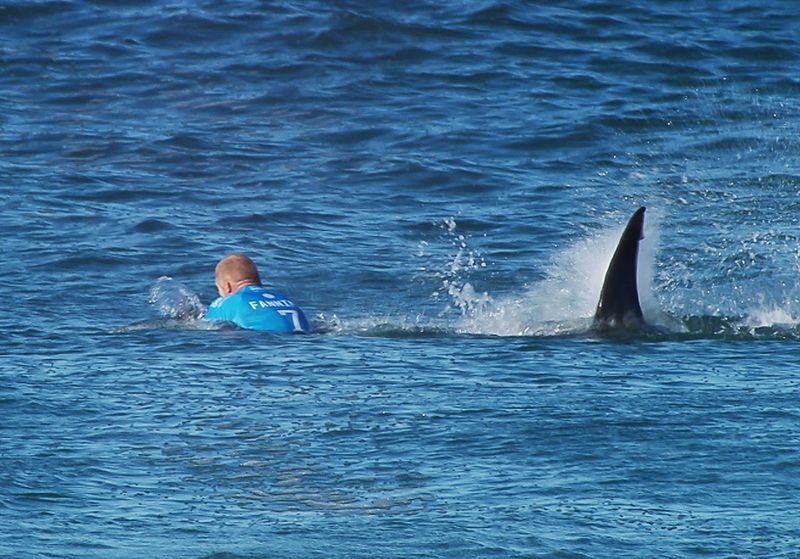
Australia’s waters are the stage for many dramatic shark encounters. The coastline’s vastness and diverse marine life create prime conditions for shark activity.
Australians have long coexisted with these ocean predators, but caution is always advised. The Great White Shark is particularly notorious here, often spotted around popular beaches.
Despite the risks, the country’s beaches remain a top destination for surfers and swimmers. Lifeguards are well-trained to handle potential shark sightings. Educational campaigns further enhance beach safety, encouraging respectful coexistence with these majestic creatures.
United States
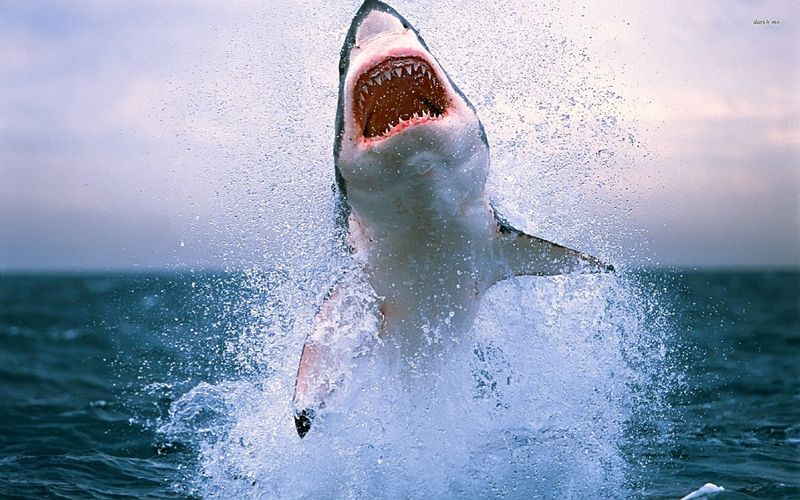
In the United States, Florida stands out as a hotspot for shark activity. The state’s warm waters attract both sharks and swimmers, leading to increased encounters.
Shark attacks here are more frequent than fatal, thanks to prompt medical response and awareness. Local authorities have established extensive safety measures, including shark spotting and public education.
Despite the potential danger, tourists flock to Florida’s beaches, drawn by the allure of sun, sand, and sea. The culture of beach life thrives, with a cautious respect for the ocean’s unpredictable nature.
South Africa

South Africa’s reputation for shark attacks is closely linked to the Great White Shark. The country’s unique coastline provides a rich habitat for these predators.
Shark cage diving has become a popular tourist attraction, offering a thrilling way to safely observe these majestic creatures. The combination of diverse marine life and active human recreation contributes to shark encounters.
Efforts to increase understanding and reduce risks include research and public awareness campaigns. Locals and visitors alike appreciate the importance of sharks in the marine ecosystem, fostering a culture of respect and conservation.
Brazil

In Brazil, the beaches of Recife are infamous for shark attacks. The warm, nutrient-rich waters attract a variety of shark species.
The city’s rapid urbanization has altered natural habitats, potentially increasing shark encounters. Efforts to mitigate risks include shark nets and warning systems. Despite the challenges, Recife remains a vibrant cultural hub. Visitors are drawn to its lively atmosphere, rich history, and beautiful coastline.
The local government works tirelessly to balance tourism with safety, striving to protect both residents and the marine environment.
Reunion Island
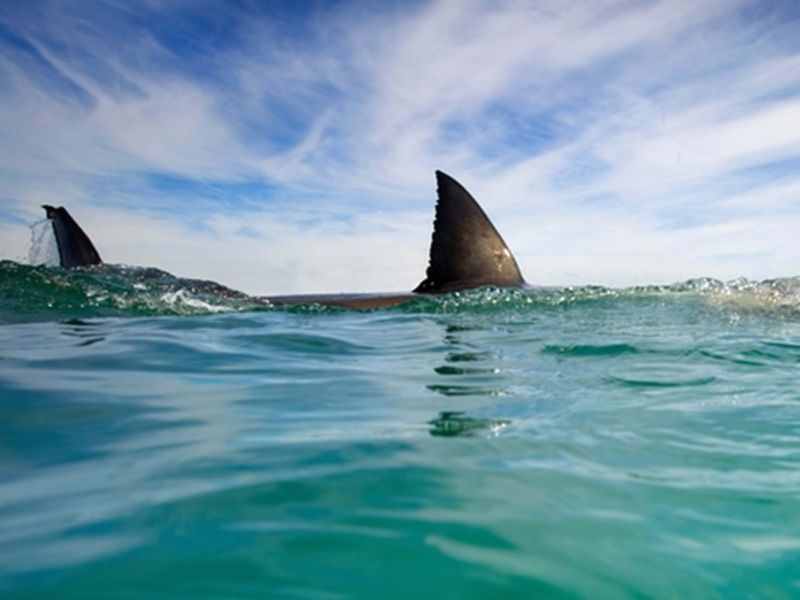
Reunion Island, a French territory in the Indian Ocean, is known for its stunning natural beauty and frequent shark attacks. The island’s volcanic origins create a unique marine environment that attracts sharks.
Surfing is a popular activity, despite the risks. To protect both humans and sharks, authorities have implemented surveillance and exclusion measures. These efforts aim to preserve the island’s allure while minimizing danger.
The community is deeply connected to the ocean, fostering a resilient and informed population dedicated to understanding and protecting their marine neighbors.
Bahamas
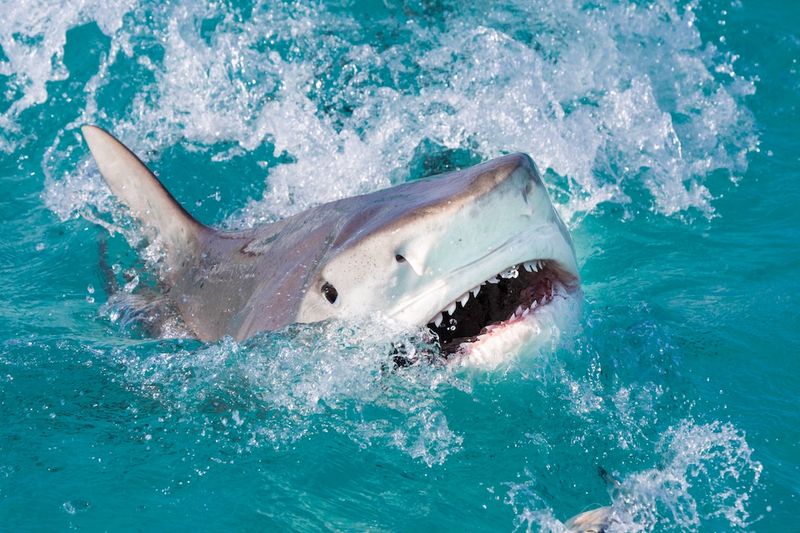
The Bahamas, with its azure waters and vibrant coral reefs, is a paradise for marine life, including sharks. Although encounters are less frequent, they can still occur.
The country’s tourism industry thrives on water-based activities such as snorkeling and diving. To ensure safety, authorities promote guidelines for interacting with marine life. Education and respect for the ocean are key components of the Bahamian approach.
The islands’ natural beauty and rich biodiversity create a unique environment where humans and sharks coexist, drawing visitors from around the world.
Mexico
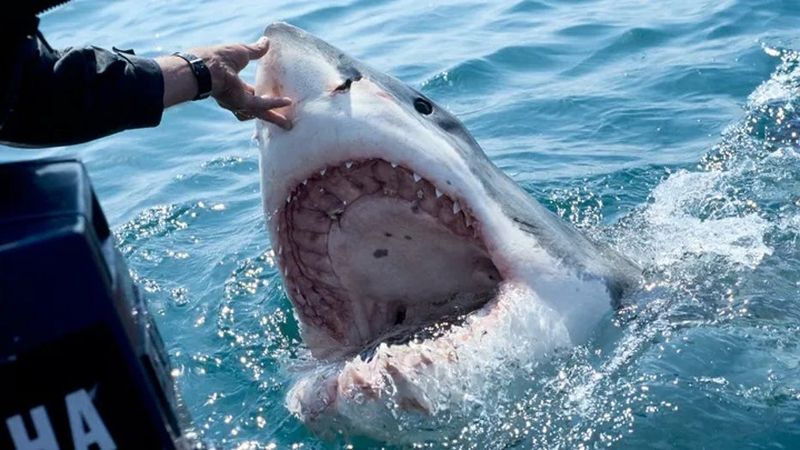
Mexico’s coastline, particularly around the Gulf of California, hosts a diverse array of marine life, including sharks. While shark attacks are not overly common, the country’s proactive measures help maintain safety.
Tourists are attracted to Mexico’s beaches for their natural beauty and recreational opportunities. Educational programs and clear guidelines are in place to mitigate risks. The country’s rich cultural heritage adds an extra dimension to the visitor experience.
As with many coastal regions, the balance between enjoying the sea and respecting its inhabitants is central to the Mexican beach lifestyle.
Egypt

The Red Sea’s warm waters make Egypt a favorite destination for divers and marine enthusiasts. Shark encounters are part of the allure, though they remain relatively rare.
The country’s vibrant marine ecosystem supports a variety of species, including the occasional shark sighting. Dive operators emphasize safety and respect for wildlife, educating divers on how to interact responsibly.
Egypt’s rich history and stunning natural environment create a unique blend of culture and adventure, drawing visitors eager to explore both the land and sea.
New Zealand

New Zealand’s commitment to marine conservation is evident in its approach to shark encounters. The country’s diverse coastal waters are home to several shark species.
While attacks are rare, New Zealand promotes a culture of awareness and respect. Surfers and swimmers enjoy the pristine beaches, often sharing the waves with marine life. Educational initiatives focus on understanding the ocean’s dynamics.
The nation’s natural beauty and outdoor lifestyle are enhanced by a deep connection to the environment, fostering a harmonious relationship with the sea’s inhabitants.
Japan
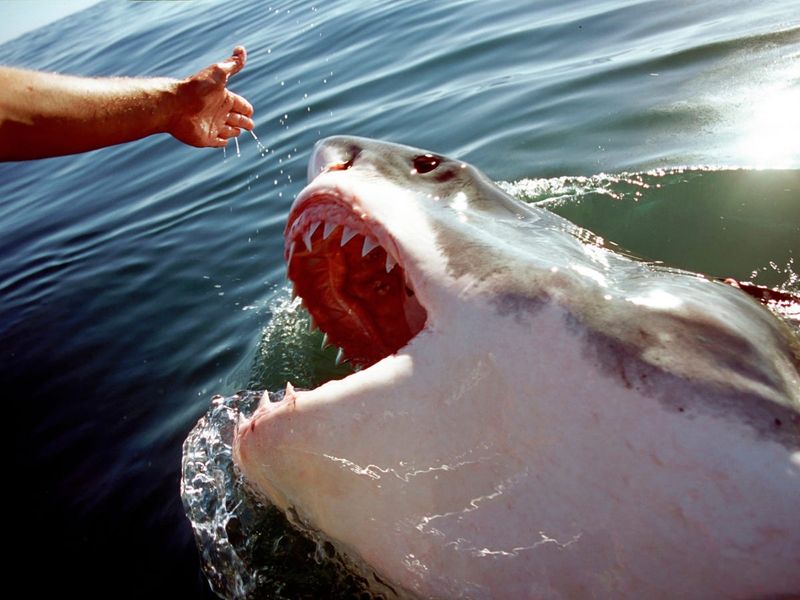
Japan’s relationship with the sea is deeply rooted in its culture and history. The country’s coastal waters support a rich marine ecosystem, including sharks.
While attacks are infrequent, Japan prioritizes safety and education. Coastal communities have long respected the ocean’s power and beauty. Fishing and marine activities are integral to Japanese life, with traditional practices coexisting alongside modern conservation efforts.
The nation’s unique blend of tradition and innovation creates a dynamic environment where humans and marine life thrive together, celebrating the ocean’s bounty.
Iceland

Iceland’s cold waters are not typical shark habitats, resulting in minimal shark encounters. The country’s emphasis on marine conservation and sustainable fishing practices contributes to this rarity.
Icelanders have a profound connection to the ocean, rooted in their history and geography. The pristine environment attracts those seeking adventure and tranquility. Visitors are drawn to Iceland’s dramatic landscapes and unique wildlife.
The nation’s commitment to preserving its natural beauty ensures that its waters remain safe and thriving, offering a peaceful coexistence with marine life.
Norway
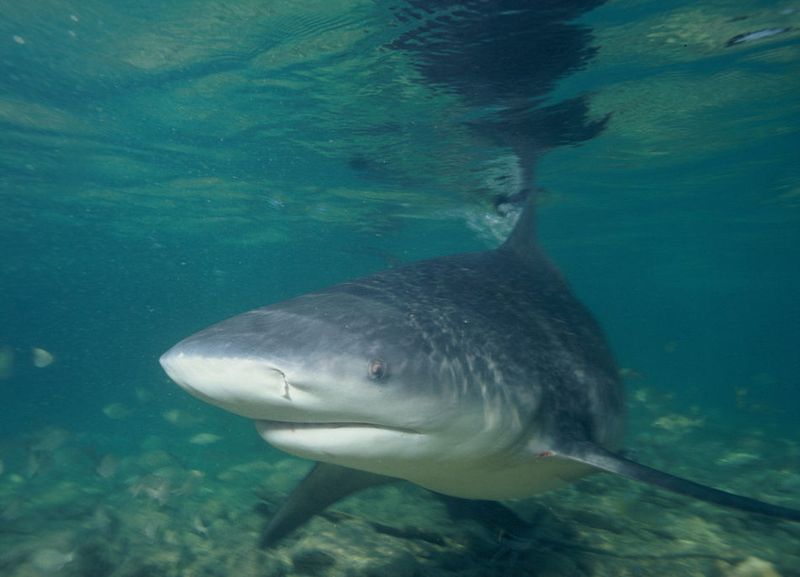
Norway’s fjords and cold waters are not conducive to frequent shark encounters, contributing to the country’s low attack rate.
Norwegians value their marine heritage, emphasizing conservation and sustainable practices. The stunning natural environment attracts both locals and tourists, eager to explore the unique landscapes. Fishing and maritime activities are central to Norwegian life, reflecting a deep respect for the ocean’s resources.
The nation’s blend of tradition and modernity fosters a harmonious relationship with the sea, ensuring a safe and sustainable future for its marine inhabitants.
Finland

Finland’s inland waters and Baltic Sea coastlines are not typical shark habitats, resulting in very few shark encounters. The country’s focus on sustainability and environmental protection contributes to this safety.
Finnish culture is deeply connected to nature, celebrating the beauty of its lakes and forests. Outdoor activities such as fishing and boating are popular pastimes, enjoyed in harmony with the environment.
Finland’s commitment to preserving its natural landscapes ensures a peaceful coexistence with wildlife, offering a tranquil escape for those seeking to connect with nature.
Greenland

Greenland’s icy waters and remote location mean sharks are a rare sight. The country’s focus on indigenous practices and sustainable living contributes to this rarity.
Greenlanders have a deep respect for the natural world, rooted in their traditions and lifestyle. The pristine environment attracts those seeking adventure and solitude. Visitors are drawn to Greenland’s breathtaking landscapes and unique culture.
The nation’s commitment to preserving its natural beauty ensures that its waters remain safe and thriving, offering a unique experience for those who venture into its remote regions.
Sweden

Sweden’s coastal waters are calm and rarely host shark encounters. The country’s emphasis on environmental protection and sustainable practices fosters this safety.
Swedes have a strong connection to the sea, reflected in their maritime traditions and recreational activities. Fishing and boating are integral to Swedish life, celebrated in harmony with nature. Sweden’s breathtaking landscapes and commitment to conservation create an inviting environment for both locals and visitors.
The nation’s blend of modernity and tradition ensures a peaceful coexistence with marine life, safeguarding its future.
Denmark

Denmark’s coastal waters rarely experience shark encounters, thanks to the country’s focus on marine conservation and sustainable practices.
Danes have a deep appreciation for their natural environment, reflected in their outdoor lifestyle. Beaches and maritime activities are central to Danish life, enjoyed in harmony with the sea. The nation’s emphasis on environmental education and awareness ensures a safe and thriving marine ecosystem.
Denmark’s scenic coastlines and vibrant culture create an inviting atmosphere for those seeking to connect with nature, offering a tranquil escape from the bustling world.
Ireland

Ireland’s Atlantic coastline is not a common site for shark encounters, resulting in a low attack rate. The country’s focus on marine conservation and sustainable practices contributes to this safety.
The Irish have a strong connection to the ocean, celebrated in their maritime traditions and folklore. Fishing and coastal activities are integral to Irish life, enjoyed in harmony with nature.
Ireland’s breathtaking landscapes and commitment to environmental preservation create an inviting environment for both locals and visitors. The nation’s rich cultural heritage and natural beauty ensure a peaceful coexistence with marine life.

